I've just started learning tensorflow, and basically I'm learning to do various numerical computations using tensorflow rather than directly jumping into its use in ML. I'm doing this on the Google Cloud Platform, where I came across this problem and got stuck.
I'm using lazy evaluation and I can make instances of a0, a1, a2...,a4 in the tensorflow graph using placeholders, also I can write out the function. But how do I make the initial guess using tensorflow? And moreover, even if I get value of x0 how do I apply loop using tf.while_loop I went through its documentation and this post, but I'm still clueless as to how do I proceed. I tried to find a post with similar question or content but couldn't find a one in which tensorflow is used. It would be great if I could get insights or way to use intrinsic tensorflow functions and commands :) Thanks in advance!
